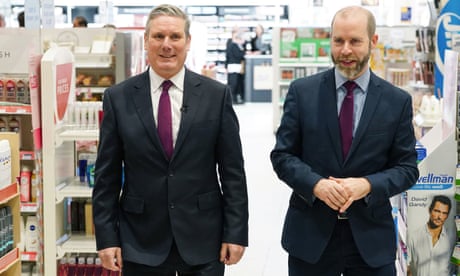UK should invest in green economy instead of tax giveaways, study shows
Economists say funding energy infrastructure, transport, tech and the environment will aid prosperity
The UK should invest £26bn a year in a low-carbon economy to revive prosperity instead of planning tax giveaways that will only lead to further stagnation, leading economists have advised.
Investing in energy infrastructure, transport, innovation in new technologies such as AI, and the natural environment would boost the UK’s economy rapidly, the research found.
Public investment at that level would be likely to generate about twice as much accompanying investment from the private sector, and would quickly pay off in higher productivity, efficiency savings, economic growth and carbon reductions, according to a major paper by Lord Stern, a former chief economist of the World Bank, and colleagues from the London School of Economics.
Current government plans to stifle investment, by contrast, would lead to a “continuation of stagnant productivity and weak economic growth”.
The findings are strikingly similar to the commitments made repeatedly by Keir Starmer, the Labour leader, to invest £28bn a year in a “green prosperity plan”. Those commitments have come under sustained attack from the Tories, and are now to be reviewed by the opposition leadership this week, as some figures within the party are understood to favour dropping the pledge.
The authors of the LSE paper, entitled Boosting Growth and Productivity in the UK Through Investments in the Sustainable Economy, published on Monday, arrived at their conclusions independently, by examining the fitness of the UK’s crumbling infrastructure, the challenges and benefits of low-carbon investment, the broader economic environment and international competition.
Dimitri Zenghelis, lead author of the paper, said: “This does indeed mean that Labour’s £28bn-a-year green investment plans are of the right magnitude, consistent with investing in the structural change associated with a sustainable and resilient transition.”
But he noted that the investments required – equivalent to an increase in public investment of roughly 1% of GDP – were also similar to those espoused by the former prime minister Boris Johnson, when he held the presidency of the G7 group of advanced industrialised nations.
Zenghelis said the research suggested that any “fiscal headroom” within the public finances, owing to better than expected economic performance, would be better allocated to investment than to tax cuts, which the Conservative government is planning.
“The evidence suggests that [such an uplift in public investment], after more than a decade of underinvestment, gives the UK the best chance of staying in, and possibly ahead of, the global innovation, efficiency and productivity game,” said Zenghelis.
“High taxes do constrain private activity, but the evidence shows that in the UK the far bigger constraint is deficient core infrastructure and underinvestment in produced, human, intangible and natural capital.”
Shaun Spiers, executive director of the Green Alliance thinktank, who was not involved in the LSE report, said: “The UK has been underinvesting for the last 45 years. The consequences are evident all around us, in failing infrastructure, costly energy and a depleted natural world.
after newsletter promotion
“Lord Stern and his colleagues are absolutely right. Public investment must be stepped up if we are to achieve net zero, restore nature and compete with countries around the world who are investing in the green industries of the future. It is what the private sector is looking for to give it the confidence to invest.”
Ed Miliband, the shadow secretary of state for energy security and net zero, said: “While the Tories refuse to invest in the greatest economic opportunity of the 21st century, now Jeremy Hunt’s economic advisers are saying they are dead wrong. Britain needs investment to grow our economy, cut energy bills and deliver energy security for our country.
“Labour’s green prosperity plan will get Britain out of the doom loop of 14 years of low growth and stagnant living standards under the Tories, by rebuilding the strength of British industry with clean, homegrown power that we control in this country.”
A government spokesperson said: “This government is focused on long-term decisions to strengthen our economy, which is why at autumn statement we announced a business investment package which could raise investment by around £20bn a year in a decade’s time.
“We’re leading the world in our transformation of the energy industry towards more clean and renewable energy, with over 80,000 green jobs being supported or in the pipeline since 2020, and our plans to power up Britain are expected to attract a further £100bn investment in green industries of the future.”
******
and hello again Singapore thanks for stopping by
and if you have just visited Birmingham thank you come again,
and send all your friends too







No comments:
Post a Comment